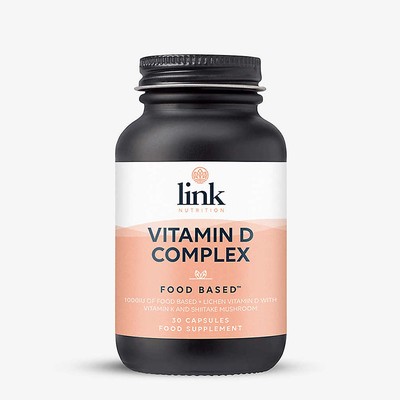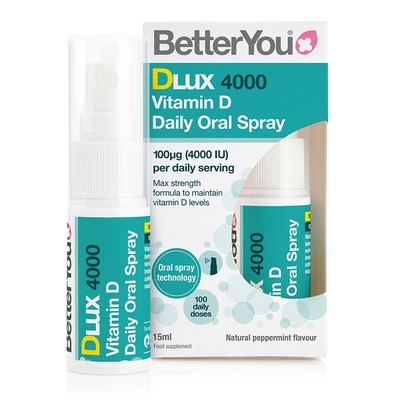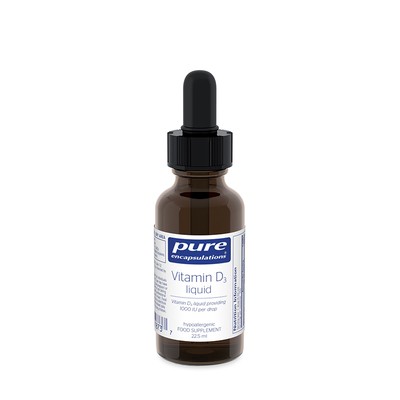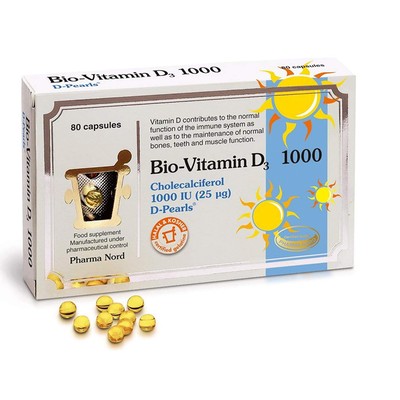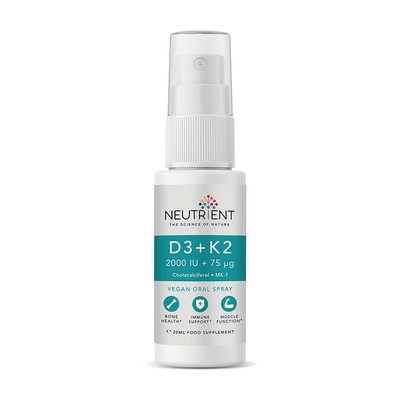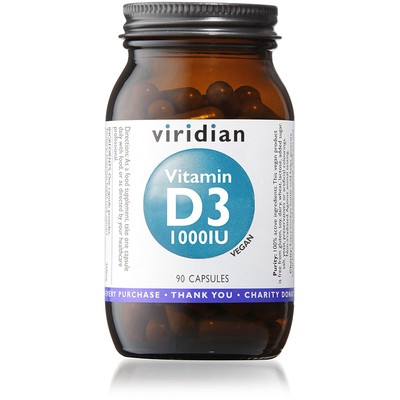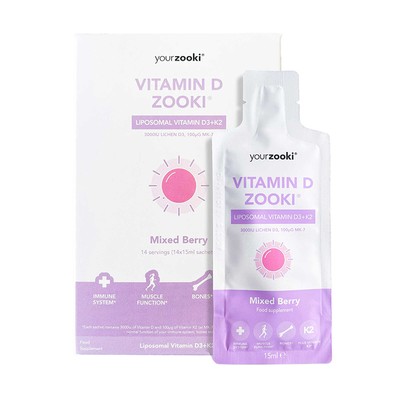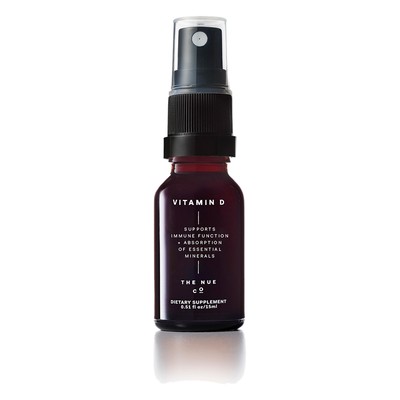Why Vitamin D Is The Supplement You Should Be Taking This Winter
It’s More Important Than Ever
Even before the pandemic, the government suggested everyone should be supplementing with vitamin D, but a recent report implied there could be a link between a deficiency and coronavirus survival rates. “Vitamin D has always been known as the bone health vitamin, although in the last few years research has emerged supporting the positive effects of vitamin D on the immune system,” nutritionist Clarissa Lenherr tells SL. One study found 80% of Covid patients within one hospital had a vitamin D deficiency. Elsewhere, a study from last year, analysing data from ten countries, suggested a correlation between low vitamin D levels and mortality rate. “Vitamin D plays a crucial role in supporting and modulating the immune system,” adds Amanda Callenberg, nutritional therapist at Your Zooki. “It also promotes heart health and regulates blood pressure, cholesterol levels and inflammation.”
It Plays A Role In Gut Health
The gut microbiome is now understood to be crucial to overall health, and vitamin D is a big factor here. “Not many people know vitamin D is linked to the diversity of your gut microbiome, which in turn has a plethora of overall health benefits, which we’re only just beginning to understand,” says nutritional therapist Ellie Clarke. “Vitamin D is also thought to influence the function of the ‘gatekeeper’ system in your gut, explaining why a deficiency has been linked with leaky gut, which in itself is a known link to autoimmune diseases and other degenerative conditions.” At the same time, better gut health boosts your body’s ability to absorb vitamin D, emphasising again the importance of looking after your microbiome.
There’s A Fair Chance You’re Deficient
“Around 20% of British adults are deficient in vitamin D,” says Abbas Kanani, pharmacist at Chemist Click. “Moreover, a recent study suggested up to 57% of Asians living in the UK are deficient, while up to 38% of UK-based Africans face the same problem. People with darker skin tones are more prone to a deficiency as higher levels of melanin make it trickier for the skin to produce vitamin D.” Throw this summer’s poor weather into the mix and your risk of a deficiency increases. “Our skin stores vitamin D away for the winter, having ideally been exposed to enough of it during the summer months to then make its own vitamin D in the winter,” Abbas adds. However, the further you travel from the equator, the less vitamin D you make – and if you’ve experienced a British summer, your stores may not be at their peak.
Low Mood Could Be A Symptom
Vitamin D is something we associate with a healthy body, but topping up your levels could also lead to a healthier mind, says Amanda. “There’s a possible connection between vitamin D and levels of serotonin, the mood-boosting neurotransmitter that’s found in the brain. In fact, vitamin D receptors are found throughout the brain. These receptors help your brain cells receive and understand messages, and a lack of vitamin D is likely to take its toll on the way your brain communicates, impacting mood, decision making and memory formation. Low levels of vitamin D have also been associated with depression, Alzheimer’s disease and other dementias, as well as general cognitive decline.”
The Shadow Test Can Help
“A lack of exposure to sunlight is the biggest reason for a deficiency,” Amanda stresses. “This can be exacerbated by shorter days in winter, poor summer sunshine and the use of sun cream.” Remember this: to stimulate production of vitamin D, the sun needs to be high enough in the sky. You can tell if your body is making vitamin D or not by checking the length of your shadow. A rough rule of thumb? If your shadow is taller than you are, your body won’t be producing vitamin D by itself. “In the UK, between October and March, any sunlight you’re exposed to doesn’t contain enough UVB for the body to effectively make vitamin D,” adds Ellie. “Therefore, during the winter months, supplementation is crucial.”
Food Sources Are Limited
It’s tricky to get enough vitamin D through diet alone, but the richest sources are oily fish, eggs, yoghurt and cheese, which explains why vegans are often deficient in vitamin D. “Salmon and mackerel are great if you eat oily fish, with one portion providing your recommended daily allowance,” says Ellie. “A portion of mushrooms (ideally chestnut and portabello) and a couple of eggs will also boost your levels. However, as vitamin D is only found in a small number of foods, it’s best to top this up with supplements.”
Your GP Is A Good Place To Start
“You should always get your vitamin D levels tested before taking a supplement, as you may need a certain amount to get yours to the right level,” says Abbas. At the same time, high levels of vitamin D can also be problematic, says Ellie. “Although it’s rare, it is possible to have too much vitamin D, and toxicity would usually be caused by supplementation, not by diet or sun exposure. The recommendation is for adults to have 400iu (equivalent to 10mg) of vitamin D each day between October and March. Having said that, a supplement that contains more than 400iu will be safe for most adults, since recommendations represent the minimum requirements. Multivitamins tend to contain 400iu, while standalone vitamin D supplements will contain more and are great if your levels need a boost.”
What You Take Matters
“Vitamin D supplements come in two forms: D2 and D3, but there’s a big difference between them,” says Amanda. “D3 is the form of vitamin D that’s closest to what sunlight naturally produces in the body, making D3 the more active and preferred form.” How to take it is down to personal choice, Ellie adds. “Take it in the way you know you’ll stick with it – sprays and capsules are good for most people, but steer clear of gummies, which tend to be loaded with sugar. Vegans should also note that most vitamin D supplements contain lanolin (from sheep’s wool), so they may prefer to choose a lanolin-free version or a vegan-friendly vitamin D2 supplement.”
A Small Amount Of Fat Aids Absorption
As a fat-soluble nutrient, vitamin D is best taken with a small portion of fats for optimal absorption. This is why some supplements come in drop form, as the oil helps the vitamin D get to where it’s needed. If, however, you’re sticking with a vitamin D capsule, be sure to take with a meal that contains some fat to reap the benefits. “Avocado and coconut oil will provide the perfect amount of healthy fats to aid vitamin D absorption,” says Ellie.
Patience Is Key
When it comes to seeing results, don’t expect miracles overnight. “It can take a few months to get your levels up to scratch,” says Abbas. “And the more depleted you are, the longer it will take.” If in any doubt, chat to your GP. “Remember there are specific calculations used to restore vitamin D levels in the body if you’re deficient, which is then followed by a maintenance dose based on your weight. How much and for how long can be determined by your GP,” says Amanda.
For more information, visit EllieClarkeWellbeing.com, ChemistClick.co.uk, YourZooki.com and ClarissaLenherr.com
Shop Our Product Edit Below...
DISCLAIMER: Features published by SheerLuxe are not intended to treat, diagnose, cure or prevent any disease. Always seek the advice of your GP or another qualified healthcare provider for any questions you have regarding a medical condition, and before undertaking any diet, exercise or other health-related programme.
DISCLAIMER: We endeavour to always credit the correct original source of every image we use. If you think a credit may be incorrect, please contact us at info@sheerluxe.com.

